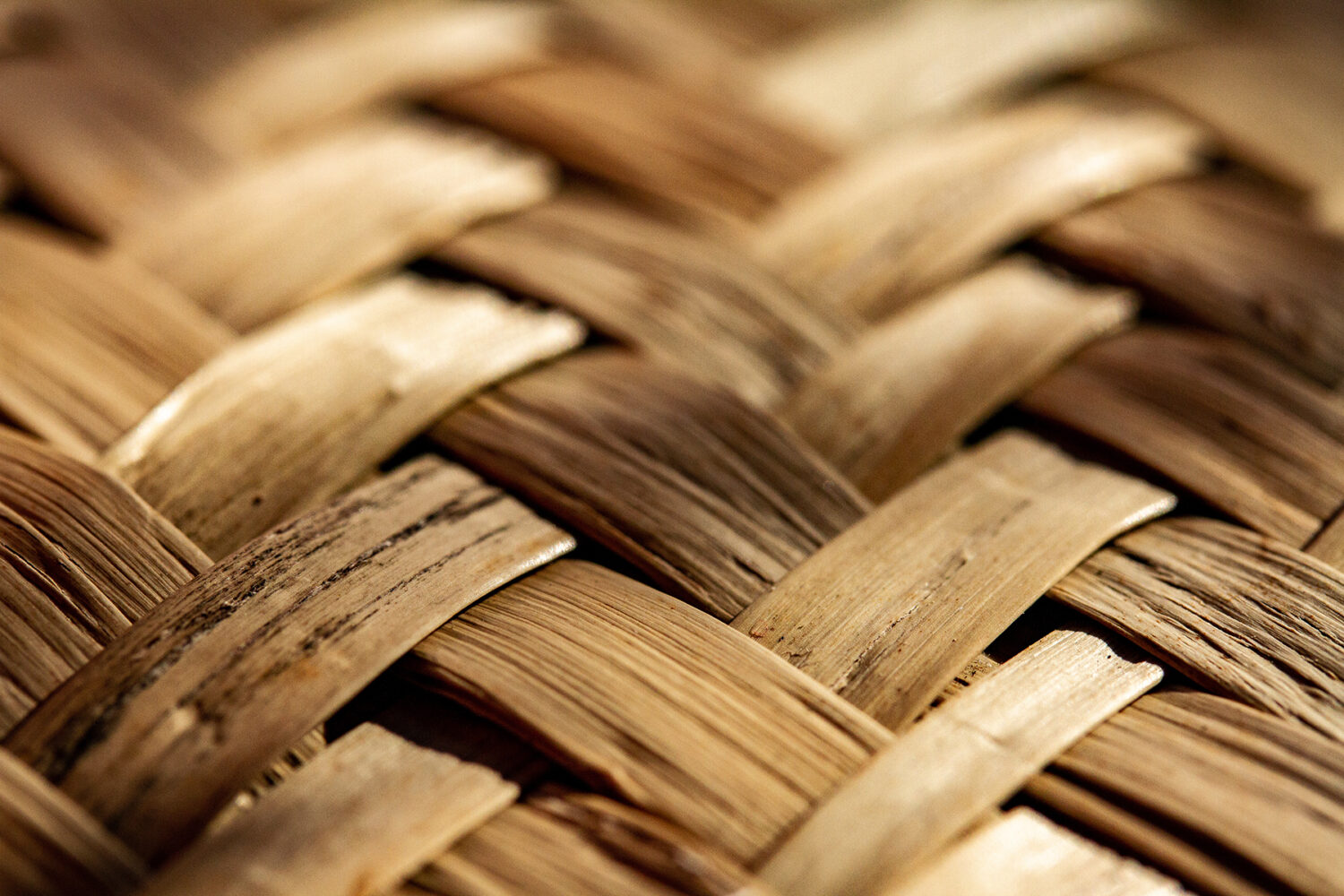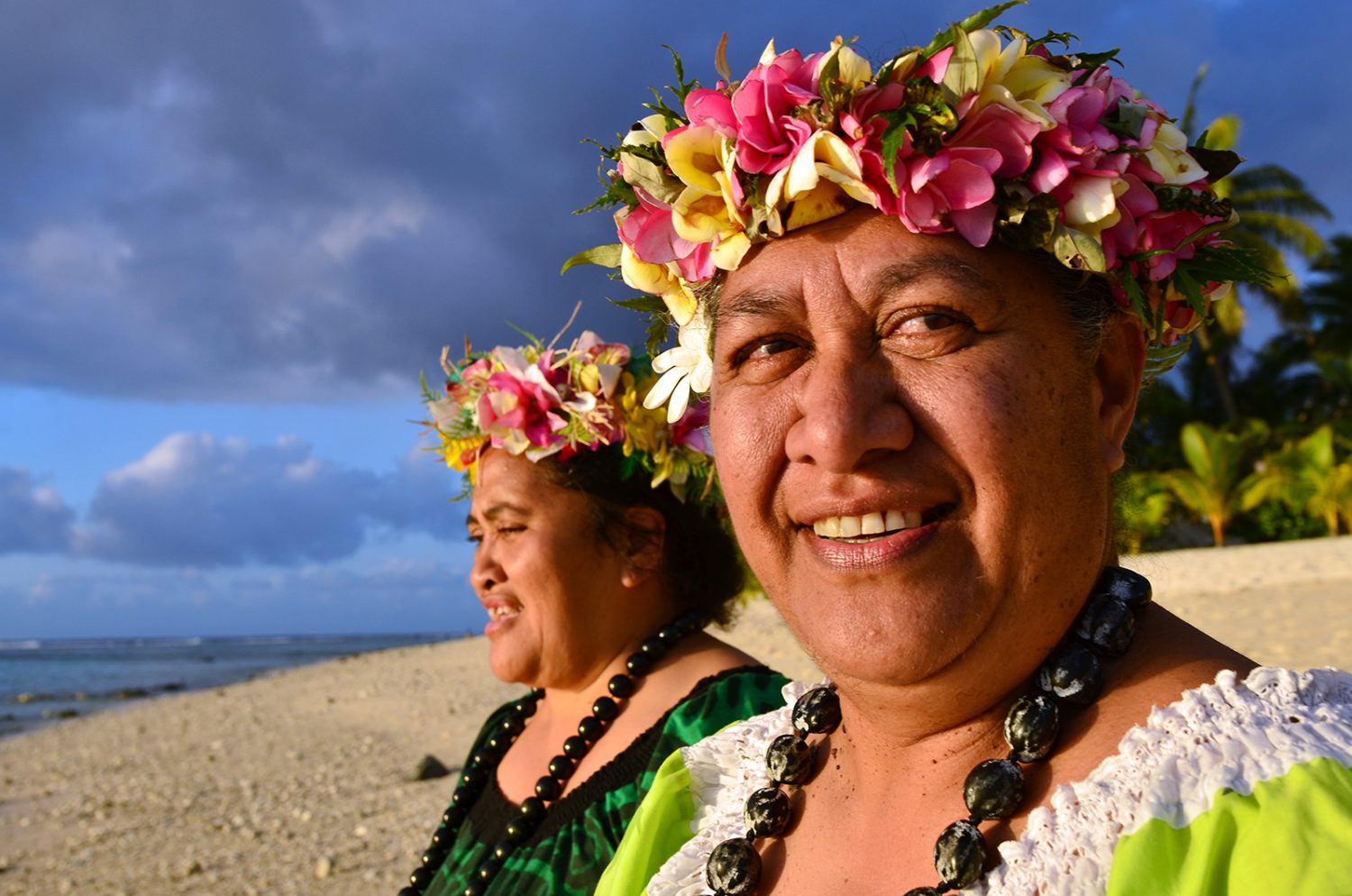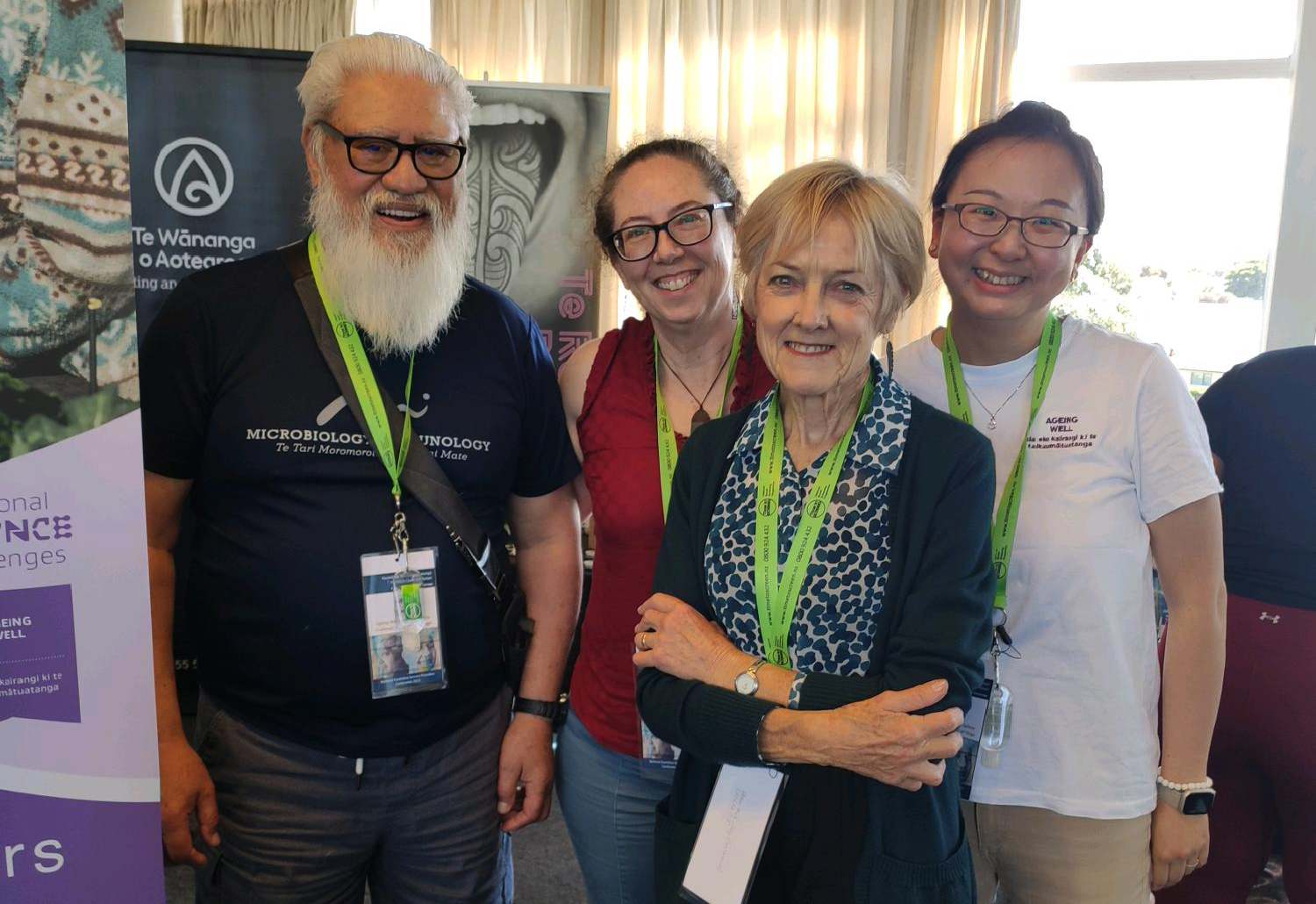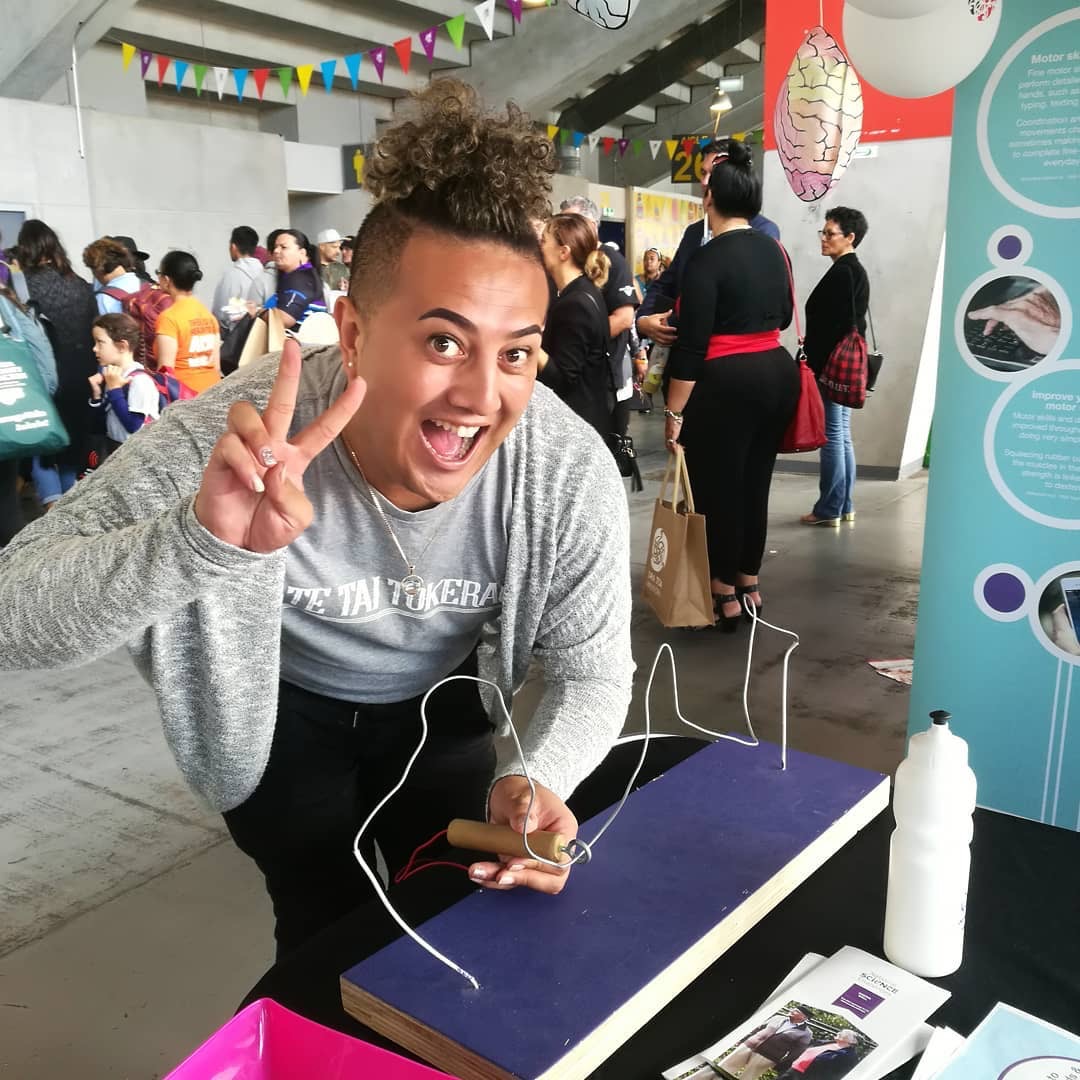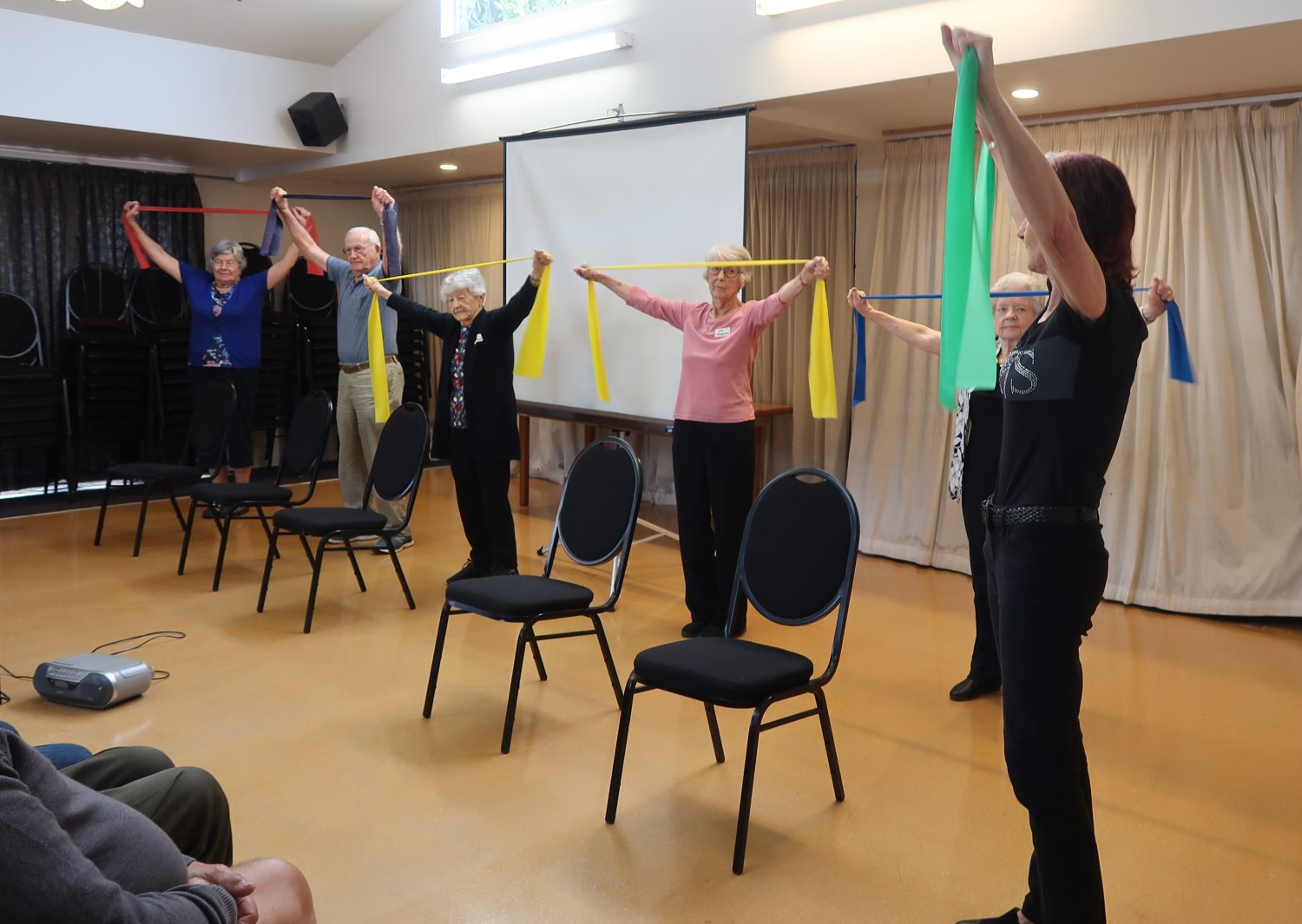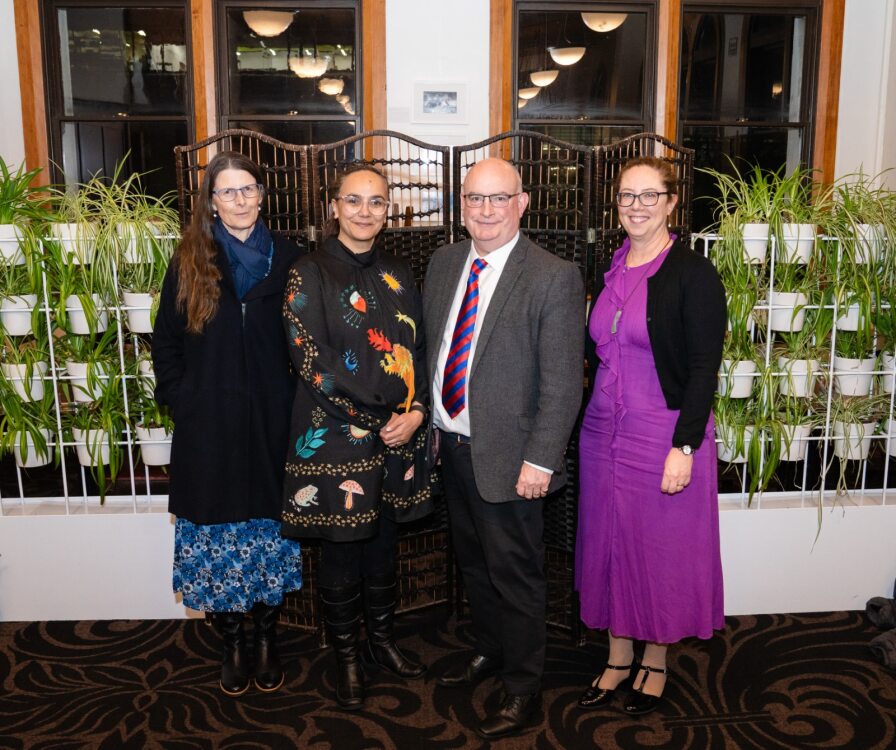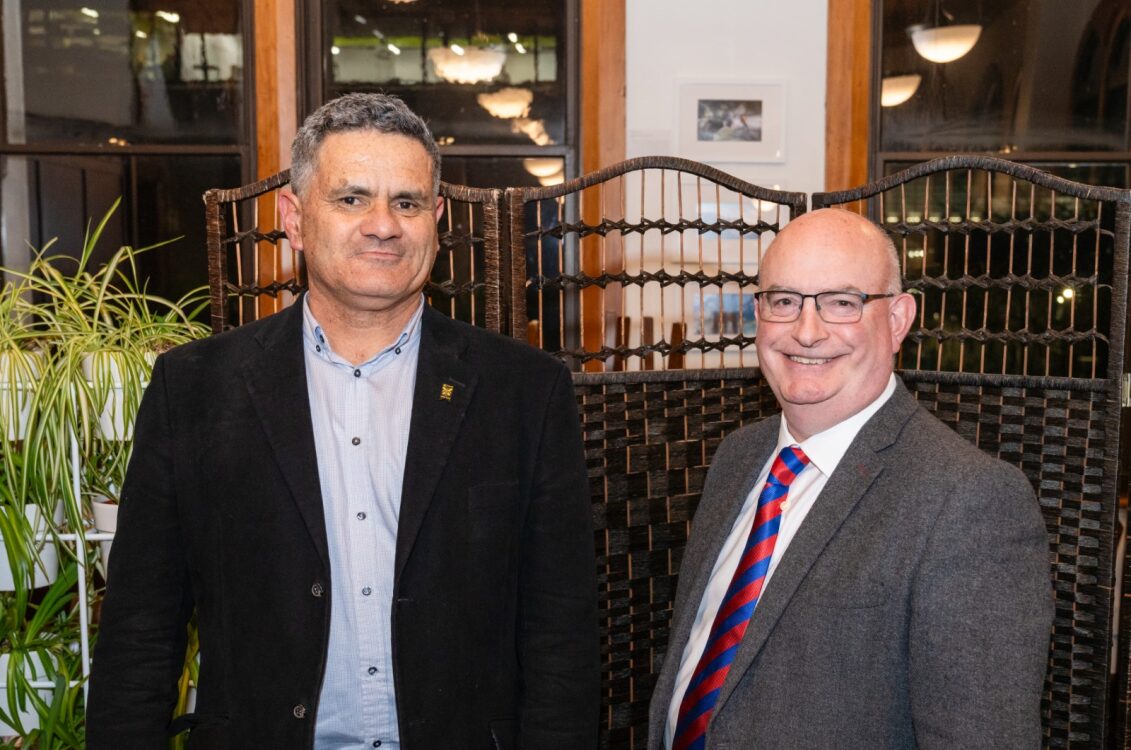Tēna koutou katoa.
Ageing Well started with a vision of what our older age could look like: healthy, connected, thriving. Our mission, after all, was harnessing science and research to sustain health and wellbeing into the later years. The beautiful thing is, that much like our lives, it doesn’t always turn out quite as planned. This turned out far better than we had initially hoped.
The initial vision for Ageing Well changed as we forged ahead. We added new people to our collective, we started to look at things from different perspectives, we developed research alongside those who will use the tools we created. We opened our ears, hearts, and minds to our whānau and communities, listened, asked questions – of ourselves, our organisation and what it stood for. And we evolved into something much greater than the sum of our parts.
As the time has come to finish the Challenge, there is so much more we wish to say. About our research, our impact, the strength and dedication of our whānau. We wish to talk about the strength of collaborating with a multitude of organisations, the novel way we opted to govern ourselves, and the courage our leaders took in addressing inequity in ageing head-on.
Ageing Well started with a vision of what our older age could look like: healthy, connected, thriving. This turned out far better than we had initially hoped.
We have formed fruitful collaborations with the two other health-focused Challenges (such as the Lifecourse project and ACTIVATION), as well as larger funders like the Accident Compensation Corporation and the Health Research Council (Taurite Tū), and with Te Atawhai o Te Ao, an independent Māori institute for health and environment and health (Te Roro).
We have produced films that build connection (Elder Birdsong) and reject ageist stereotypes of older people (Manawaroa); developed new ways of understanding the brain in culturally specific ways (Pacific Cultures, Te Roro); utilised Big Data to help predict loneliness and prevent poor outcomes before they develop; and highlighting Pacific voices and experiences.
Our research has led to the development of the Frailty Care Guides with the Te Tāhū Hauora Health Quality & Safety Commission, an early warning system for nurses in aged care facilities, and a Frailty Index to be applied to interRAI assessments; developed the concept of ‘ngā pūngāwerewere’ – webs of connection – to describe support for kaumātua; and a suite of tools to help older renters. We also produced the Well Balanced Exhibit to engage the public in learning how strength and balance changes throughout the lifecourse, and encouraging participants to test their own physical functions such as balance, grip, and muscle strength.
This is only a fraction of what we have achieved by doing science differently. We encourage you to read through the research pages on our website for illustrations of our innovative approaches to helping older New Zealanders age well.
Ageing Well has also been on a journey toward Te Tiriti partnership, making the bold move to co-governance in 2016. By championing innovative research funding, collaborative governance, and a decisive shift in power dynamics, we committed in Phase Two to a 50/50 research funding allocation centred on Māori perspectives and leadership. These strategic choices have catalysed profound changes for our organisation and the way we value mātauranga Māori alongside western science.
As we have been recording these outcomes and decisions to honour and acknowledge the mahi of our whānau, we’re still mindful of the whakataukī:
Kāore te kumara e kōrero ana mo tōna ake reka.
The kumara does not brag about its own sweetness.
However, it is important to say how proud we have been to be part of a group that set the goal of living their values and actually achieving it. We call our researchers, community partners, and advisors ‘our whānau’. It has been a real gift to acknowledge the vast network of people who have made it all happen.
As we heard from many who attended our symposium, though this may be the end of Ageing Well as an organisation, this is not the end of the Ageing Well kaupapa. Our whānau will continue building the relationships and collaborations created over the last 10 years. They will also secure new collaborations and funding sources, applying the learnings from Ageing Well in their future work for a better Aotearoa New Zealand.
As such, we sign off with sincerest thanks to you for coming along with us on this journey.
Ngā manaakitanga,
Dr Will Edwards, Chair
Professor David Baxter, Director
Associate Professor Diane Ruwhiu, Co-Director
Associate Professor Tracy Perry, Co-Director
Professor Louise Parr-Brownlie, Director (immediate past)
